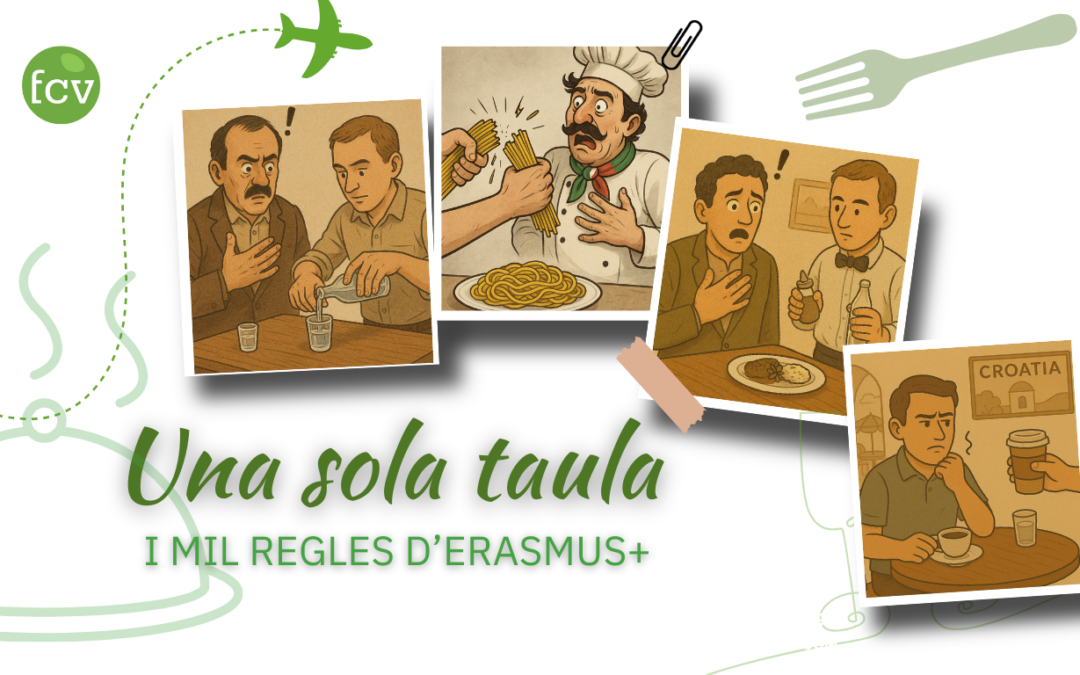Fork on the left, knife on the right. Your parents taught you the basics, but real etiquette begins where school lessons in politeness end. And the more often you take part in youth exchanges or Erasmus+ trainings, the more you realize this again and again.
Take something as simple as salt. Passing it hand to hand seems like a natural gesture of help. In Greece, however, it brings quarrels upon everyone present; locals place the saltshaker on the table and wait for you to take it yourself. Such small details shape the first impression of you as a guest.
But the hardest part is decoding the hidden signals of your behavior. Finished your plate down to the last crumb? A Greek host may think you’re still hungry and bring more dishes. Here, a clean plate signals insufficient hospitality, not your good manners.
The French take this logic to another level. For them, asking for ketchup is taken as a personal insult. A real dish must reveal its flavor without external additions. Even sprinkling salt on cooked meat may provoke silent disapproval and surprised looks from waiters. The neighboring country, Italy, also doesn’t tolerate interference with its culinary masterpieces, but in a different way. Breaking spaghetti before boiling is seen as destroying the architecture of the dish. Using a spoon to twirl pasta immediately reveals you as a tourist. Locals masterfully manage with just a fork, and that’s a matter of national pride.
And what about drinks?
It’s fascinating how alcohol becomes a language of communication across cultures. Germans are terrified of clinking glasses with water; it’s associated with death and mourning. In Serbia, there’s a hierarchy: the first shot of rakija means acquaintance, the second, true friendship. Refusing the second is much more offensive than the first. Turks developed a similar philosophy, but with tea. The first cup is for courtesy, the second for accepting the host’s hospitality. It’s a fine line between formality and trust, easily broken by careless refusal. Croatians elevate their respect for coffee to the absolute: they drink it only while sitting, turning it into a meditative ritual. Coffee to-go is considered barbaric, a misunderstanding of the essence of the process.
The most difficult to grasp are the silent rituals. A Georgian tamada controls the rhythm of the feast, and raising your glass without his permission breaks the sacred hierarchy. A Bosnian host personally pours coffee from the džezva, and trying to serve yourself “steals” his role.Oh, how much there is to remember before an Erasmus+ project!
Who would have thought that an ordinary dinner could become a test of cultural literacy?

